Science: Psychology and Psychiatry
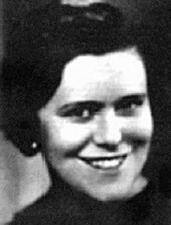
Else Frenkel-Brunswik
Else Frenkel-Brunswik was a social psychologist who is best known as a coauthor of The Authoritarian Personality.
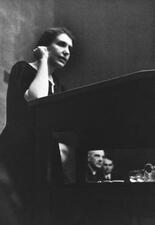
Anna Freud
Frieda Fromm-Reichmann
Frieda Fromm-Reichman was a German-American psychiatrist best known for her innovations in the psychotherapeutic treatment of schizophrenics and manic-depressive patients previously deemed unsuitable for psychoanalysis. Towards the end of her life, Fromm-Reichman received international recognition for her creative and insightful contributions to psychotherapy.
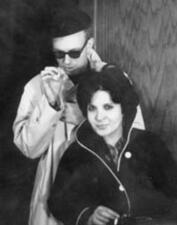
Roberta Galler
Evelyn Garfiel
Evelyn Garfiel’s Jewish scholarship on topics like the prayer book and the Hebrew language helped make Jewish study accessible to the broader public. She served on the boards of several Jewish women’s organizations and published a book in 1957 that explored the prayer book and explained the origins and purpose of different prayers.
Elisabeth Rozetta Geleerd
Elizabeth Rozetta Geleerd’s work on extreme psychological conditions such as amnesia and schizophrenia led to new methods for treating seriously disturbed children and adolescents. Along with opening her own private practice, Geleerd became a training analyst and a member of the educational committee of the New York Psychoanalytic Institute and helped shape its child and adolescent analysis program.
Mary Gendler

Carol Gilligan
The pioneering work of American psychologist Carol Gilligan changed the way the field of psychology studied women and, arguably, the way society views women. Challenging mainstream psychology through her interrogation of the accepted benchmarks of moral and personal development, she proposed that women and men have different moral criteria and follow different paths in maturation.
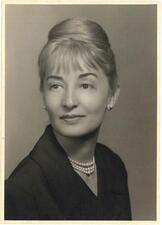
Carolyn Goodman

Joanne Greenberg
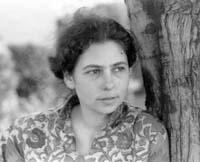
Barbara Jacobs Haber
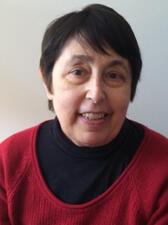
Judith Herman
Dr. Judith Herman was a pioneer in identifying the frequency with which sexual abuse of female children occurs within the family, in the treatment of victims of abuse, and in psychotherapeutic confrontations of abusers.
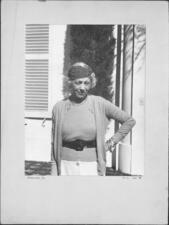
Blanche Frank Ittleson
Blanche Frank Ittleson’s pioneering work in treating and teaching intellectually disabled and emotionally disturbed children opened new possibilities for struggling children and their families.
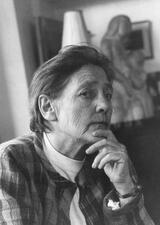
Marie Jahoda
Marie Jahoda was a major figure in social psychology, known for her work on the effects of unemployment on emotional well-being, as well as the social impact of McCarthy-era blacklisting. Jahoda received an award for distinguished contributions to the public interest from the American Psychological Association in 1979.
Anna Maria Jokl
Author, psychoanalyst, and scriptwriter Anna Maria Jokl was greatly influenced by the many places she lived: Vienna, Berlin, Prague, London, Zurich, and Jerusalem. Forced to flee countries twice because of Nazism, Jokl is best known for her German children’s books. Her prolific career includes accomplishments in radio broadcasting, psychoanalytic writing, and autobiographical prose.
Fay Berger Karpf
Fay Berger Karpf made major contributions to social science with her analysis of the history of social psychology and specifically with her support of the psychoanalyst Otto Rank. She taught for many years and wrote several books about the profound influence Rankian theories had on American psychoanalysis.
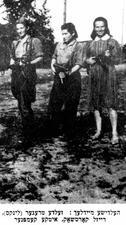
Vitka Kempner-Kovner
Vita Kempner-Kovner was a heroic fighter on the front lines of the underground resistance to the Nazis.
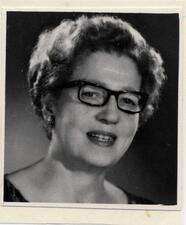
Lena Kenin
Lena Nemerovsky Kenin made major contributions to both gynecology and psychology with her successful medical practice and her groundbreaking work on postpartum depression.

Melanie Klein
Melanie Klein was a pioneer in the psychoanalysis of children and inventor of the “play technique.” She contributed important insights regarding the treatment of individuals suffering from psychosis and personality disorders. Born to a Jewish family in Vienna at the turn of the century, she later lived and practiced in Budapest, Berlin, and London.
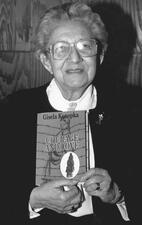
Gisela Peiper Konopka
Berlin-born Gisela Konopka built an international reputation as a group social worker and expert on youth issues. Lauded for her involvement in the rebuilding of social services and education in post-war Germany and beloved by her students at the University of Minnesota, Konopka received more than 42 awards in her lifetime.
Lena Levine
Margaret Mahler
Margaret Schönberger Mahler was a pioneering child analyst in the early twentieth century. She became a leading authority on the mother-child relationship and the separation-individuation process, which she examined in her best-known work, The Psychological Birth of the Human Infant.
Martha Tamara Schuch Mednick

Carol Nadelson
Carol C. Nadelson is a ground-breaking female psychiatrist whose work has changed how medical practice addresses women’s medical care and encouraged women to break the glass-ceiling. She as the first woman president of the Massachusetts Psychiatric Society and the American Psychiatric Association. Under Nadelson’s editorial leadership, the American Psychiatric Press became a leader in the field of psychiatry.
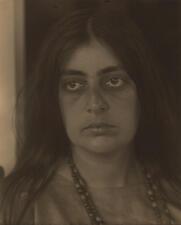
Margaret Naumburg
By founding the Walden School and creating her own system of education based on principles of psychoanalysis, Margaret Naumburg laid the groundwork for the new discipline of art therapy. Naumburg also authored many works on psychology and art therapy.


